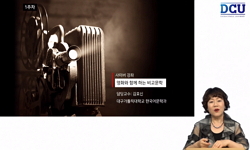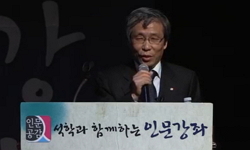In recent decades there has been a tendency to frame communicative language abilities as a set of technical skills that can be defined, quantified, measured, predicted and ultimately controlled. This process is often called ``McCommunication`` (Ritzer...
http://chineseinput.net/에서 pinyin(병음)방식으로 중국어를 변환할 수 있습니다.
변환된 중국어를 복사하여 사용하시면 됩니다.
- 中文 을 입력하시려면 zhongwen을 입력하시고 space를누르시면됩니다.
- 北京 을 입력하시려면 beijing을 입력하시고 space를 누르시면 됩니다.


언어교육의 후기-현대성에 관한 인문학적 고찰 -맥커뮤니케이션, 자아정체성, 그리고 생태주의 관점에서부터 = Understanding the Late-modernity of Language Learning: from the Views of McCommunication, Self-identities, and Ecology
한글로보기https://www.riss.kr/link?id=A99616155
- 저자
- 발행기관
- 학술지명
- 권호사항
-
발행연도
2013
-
작성언어
-
-
주제어
언어학습 ; 후기-현대성 ; 맥도날드화 ; 자아정체성 ; 생태주의 ; Language learning ; Late-Modernity ; McDonaldization ; Selfidentity ; Ecology ; 영미문학 ; 문화연구 ; 비교문학 ; 비평이론 ; English and American Literature ; cultural studies ; comparative literature ; critical theory
-
KDC
800
-
등재정보
KCI우수등재,SCOPUS
-
자료형태
학술저널
- 발행기관 URL
-
수록면
99-121(23쪽)
-
KCI 피인용횟수
8
- DOI식별코드
- 제공처
- 소장기관
-
0
상세조회 -
0
다운로드
부가정보
다국어 초록 (Multilingual Abstract)
In recent decades there has been a tendency to frame communicative language abilities as a set of technical skills that can be defined, quantified, measured, predicted and ultimately controlled. This process is often called ``McCommunication`` (Ritzer 2003). The over-rationalized, standardized, and commodified education of language have dominated the current conventions of developing curriculum, materials, and tests of language learning. Authentic language and its educational activities have often conformed to narrow standards of correctness, clarity, efficiency, or ``verbal hygiene`` (Cameron 1995). Korean researchers in the field of second language education have not taken the issue of McCommunication culture seriously. The purpose of this paper is to re-visit the modernization issues of language education industry by referencing late-modernity (Beck 1997; Giddens 1997) and ecological views (Kramsch 2002; van Lier 2004) across the other academic disciplines. It was argued that the McDonaldizatin of language learning has become a common phenomenon, and that the meaningfulness has been seriously questioned. Then Giddens` (1991) concepts of reflexivity and self-identity were suggested as a meaningful ends to language learning. Ecology of language learning were also elaborated as a transdisciplinary endeavor, to encourage reflection over the McDonaldized culture of (English) language learning in Korea. Further research questions, such as appropriate pedagogy (Kramsch & Sullivan 1996), expanded modeling of communicative language abilities (Norton 2000), are also discussed.
참고문헌 (Reference)
1 신동일, "정책도구로 사용되는 언어시험: 국내 영어시험 중심으로" 한국영어교육학회 66 (66): 281-305, 2011
2 이창덕, "음성언어 생태와 듣기·말하기 교육" 한국초등국어교육학회 (22) : 37-78, 2003
3 박인기, "생태학적 국어교육의 현실과 지향" 한국초등국어교육학회 (22) : 1-36, 2003
4 송용구, "생태주의 관점에서 바라본 문화적 상호의존 관계와 제2외국어 교육" 한국카프카학회 (16) : 119-142, 2006
5 신동일, "비판적응용언어학의 지식전통: 응용언어학의 외연 확장을 위한 예비적 논의" 2 (2): 127-151, 2011
6 곽춘옥, "문식성 학습과 평가에 대한 생태학적 접근" 국어교육학회 (18) : 5-34, 2003
7 신동일, "‘토플대란’에 관한 신문기사 분석 -비판적 담론분석을 기반으로-" 한국외국어교육학회 19 (19): 187-210, 2012
8 Sakui, K, "Wearing Two Pairs of Shoes: Language Teaching in Japan" 58 (58): 155-163, 2004
9 Cameron, D, "Verbal Hygiene" Routledge 1995
10 Bookchin, M, "Toward an Ecological Society" Black Rose Books 1980
1 신동일, "정책도구로 사용되는 언어시험: 국내 영어시험 중심으로" 한국영어교육학회 66 (66): 281-305, 2011
2 이창덕, "음성언어 생태와 듣기·말하기 교육" 한국초등국어교육학회 (22) : 37-78, 2003
3 박인기, "생태학적 국어교육의 현실과 지향" 한국초등국어교육학회 (22) : 1-36, 2003
4 송용구, "생태주의 관점에서 바라본 문화적 상호의존 관계와 제2외국어 교육" 한국카프카학회 (16) : 119-142, 2006
5 신동일, "비판적응용언어학의 지식전통: 응용언어학의 외연 확장을 위한 예비적 논의" 2 (2): 127-151, 2011
6 곽춘옥, "문식성 학습과 평가에 대한 생태학적 접근" 국어교육학회 (18) : 5-34, 2003
7 신동일, "‘토플대란’에 관한 신문기사 분석 -비판적 담론분석을 기반으로-" 한국외국어교육학회 19 (19): 187-210, 2012
8 Sakui, K, "Wearing Two Pairs of Shoes: Language Teaching in Japan" 58 (58): 155-163, 2004
9 Cameron, D, "Verbal Hygiene" Routledge 1995
10 Bookchin, M, "Toward an Ecological Society" Black Rose Books 1980
11 Shohamy, E, "The Power of Tests: A Critical Perspective on the Use of Language Tests" Pearson 2001
12 Freire, P, "The Politics of Education: Culture, Power, and Liberation. South Hadley" Bergin & Garvey 1985
13 Habermas, J, "The Philosophical Discourse of Modernity" MIT Press 1987
14 Ritzer, G, "The McDonaldization of Society: An Investigation into the Changing Character of Contemporary Social Life" Siyousi. Print 2000
15 Haugen, E, "The Ecology of Language" Stanford UP 1972
16 van Lier, L, "The Ecology and Semiotics of Language Learning: A Sociocultural Perspective" Kluwer Academic Publishers 2004
17 Pennycook, A., "The Cultural Politics of English as an International Language" Longman Group Limited 1994
18 Corson, D, "Teaching and Learning for Market-place Utility" 5 (5): 1-13, 2002
19 McKay, L, "Teaching English as an International Language" Oxford UP 2002
20 Schumacher, E. F, "Small is Beautiful: Economics as If People Mattered: 25 Years Later with Commentaries" Hartley and Marks Publishers 1999
21 Mitchell, R., "Sameness and Difference in Classroom Learning Cultures: Interpretations of Communicative Pedagogy in the UK and Korea" 7 (7): 35-63, 2003
22 Beck, U, "Risikogesellsschaft: Auf dem Weg in eine andere Moderne" Saemulkyeol 1986
23 Beck, U, "Reflexive Modernization" Hanool 1994
24 Chohan, Hye-jeong, "Reflexive Modernity and Feminism" Tto Hanaui Moonwha 1998
25 van Lier, L., "Reeling, Writhing, Drawling, Stretching, and Fainting in Coils: Oral Proficiency Interview as Conversation" 23 (23): 489-508, 1989
26 Foucault, M, "Power/knowledge: Selected Interviews and Other Writings, 1972- 1977" Pantheon Books 1980
27 Freire, P, "Pedagogy of the Oppression" Seabury Press 1970
28 Block, D., "Neoliberalism and Applied Linguistics" Routledge 2012
29 Haruki, M, "Murakimi Huruki Zatsubun-Shu" Bichae 2011
30 Giddens, A, "Modernity and Self Identity: Self and Society in the Late Modern Age" Saemoolkyeol 1991
31 Block, D, "McCommunication: A Problem in the Frame of SLA, In Globalization and Language Teaching" Routledge 117-133, 2002
32 Kim, Ho-ki, "Main Currents in Critical Social" Hanool 2001
33 Tan, P. K. W., "Language as Commodity: Global Structures, Local Marketplaces" Continuum 2008
34 Bachman, L. F., "Language Testing in Practice" Oxford UP 1996
35 Shohamy, E, "Language Policy: Hidden Agendas and New Approaches" Routledge 2006
36 Cook, G, "Language Play, Language Learning" Oxford UP 2000
37 Larsen-Freeman, D, "Language Acquisition and Language Use from a Chaos/complexity Theory Perspective, In Language Acquisition and Language Socialization: Ecological Perspectives" Continuum 33-46, 2002
38 Kramsch, C., "Language Acquisition and Language Socialization: Ecological Perspectives" Continuum 2002
39 Chae, Young-hee, "Korean Vocabulary Education from the Viewpoint of Ecological Linguistics" 33 : 365-388, 2003
40 Jang, H, "Kicking Away the Ladder: Developmental Strategy in Historical Perspective" Anthem Press 2002
41 McNamara, T, "Interaction in Second Language Performance Assessment: Whose Performance?" 18 (18): 446-466, 1997
42 Norton, B, "Identity and Language Learning: Gender, Ethnicity and Educational Change" Pearson Education 2000
43 Dewey, J, "How We Think" Prometheus Books 1991
44 Cameron, D, "Good to Talk: Living and Working in a Communication Culture" Sage Publication 2000
45 Weedon, C, "Feminist Practice and Poststructuralist Theory. 2nd" Blackwell 1997
46 Lee, Sang-heon, "Ecology" Chaeksesang 2011
47 Park, Yuk-hyeon, "Eco-linguistic Study on Language Conflict" 5 : 19-36, 1999
48 Nguyen, P. M., "Culturally Appropriate Pedagogy: The Case of Group Learning in a Confucian Heritage Culture Context" 17 (17): 1-19, 2006
49 Park, Seong-hwan, "Cultural Sociology and Anthropology of Max Weber" Moonhakgwa Jiseongsa 1992
50 Chung, Chung-ho., "Cultural Politics of Theory and Critical Studies of Discourse" Pooreunsasangsa 2006
51 Cortazzi, M., "Cultural Mirrors: Materials and Methods in the EFL Classroom, In Culture in Second Language Teaching" Cambridge UP 196-219, 1999
52 Pennycook, A., "Critical Applied Linguistics: A Critical Introduction" Lawrence Erlbaum Associates 2001
53 Yun, Pyeong-jung, "Beyond Foucault and Habermas: Rationality and Critique of Society" Kyobomoongo 1990
54 Milroy, J., "Authority in Language: Investigating Standard English" Routledge 1999
55 Kramsch, C, "Appropriate Pedagogy" 50 (50): 199-212, 1996
56 Holliday, A, "Appropriate Methodology and Social Context" Cambridge UP 1994
동일학술지(권/호) 다른 논문
-
『공감의 힘, 혹은 자연의 승리』에 나타난 “자연”과 공화주의
- 한국영어영문학회
- 정희원 ( Hee Won Chung )
- 2013
- KCI우수등재,SCOPUS
-
메멘토 모리의 문화적 진화 -홀바인 2세의 <죽음의 무도>에서 동시대의 “비가시적 죽음”까지
- 한국영어영문학회
- 황훈성 ( Hoon Sung Hwang )
- 2013
- KCI우수등재,SCOPUS
-
사라 스콧의『밀레니엄 홀』 -유토피아적 여성 공동체의 전복성과 한계
- 한국영어영문학회
- 오봉희 ( Bong Hee Oh )
- 2013
- KCI우수등재,SCOPUS
-
- 한국영어영문학회
- 김미정 ( Mi Jeong Kim )
- 2013
- KCI우수등재,SCOPUS
분석정보
인용정보 인용지수 설명보기
학술지 이력
| 연월일 | 이력구분 | 이력상세 | 등재구분 |
|---|---|---|---|
| 2022 | 평가예정 | 계속평가 신청대상 (등재유지) | |
| 2017-01-01 | 평가 | 우수등재학술지 선정 (계속평가) | |
| 2014-10-08 | 학회명변경 | 영문명 : 미등록 -> The English Language and Literature Association of Korea |  |
| 2013-01-01 | 평가 | 등재학술지 유지 (등재유지) |  |
| 2010-01-01 | 평가 | 등재학술지 유지 (등재유지) |  |
| 2008-01-01 | 평가 | 등재학술지 유지 (등재유지) |  |
| 2006-01-01 | 평가 | 등재학술지 유지 (등재유지) |  |
| 2005-10-14 | 학술지등록 | 한글명 : 영어영문학외국어명 : The Journal of English Language and Literature |  |
| 2004-01-01 | 평가 | 등재학술지 유지 (등재유지) |  |
| 2001-01-01 | 평가 | 등재학술지 선정 (등재후보2차) |  |
| 1998-07-01 | 평가 | 등재후보학술지 선정 (신규평가) |  |
학술지 인용정보
| 기준연도 | WOS-KCI 통합IF(2년) | KCIF(2년) | KCIF(3년) |
|---|---|---|---|
| 2016 | 0.06 | 0.06 | 0.1 |
| KCIF(4년) | KCIF(5년) | 중심성지수(3년) | 즉시성지수 |
| 0.18 | 0.2 | 0.384 | 0 |




 KCI
KCI KISS
KISS







